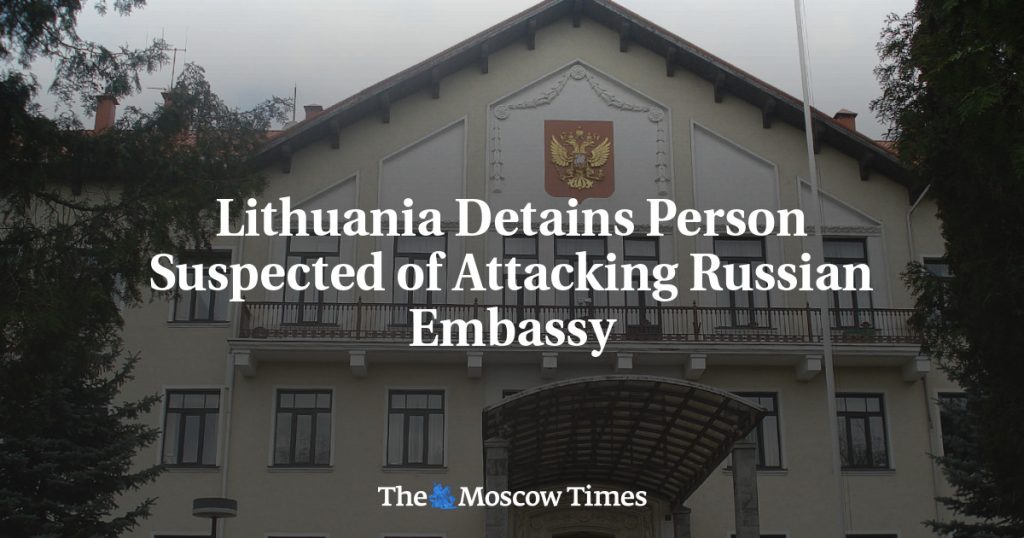Police in Lithuania have made an arrest in connection to two arson attacks on Russia’s Embassy in Vilnius over the weekend. Early on Sunday and Monday, Molotov cocktails were thrown at the embassy, prompting law enforcement authorities to launch a criminal investigation. Despite the incidents, neither the embassy nor Russia’s Foreign Ministry have made any comments. The suspect, a Lithuanian citizen born in 1974, was taken into custody by the Vilnius police. No other identifying details of the suspect have been released, but it is reported that the crime of damaging property is punishable by up to five years in prison in Lithuania.
The attacks on the Russia Embassy in Vilnius have caused concern and raised tensions between Lithuania and Russia. The motive behind the arson attacks remains unclear, and the arrest of the Lithuanian citizen has led to an investigation into possible connections to any groups or organizations. The incidents come amidst existing tensions between the two countries, likely prompted by political differences and historical animosities. The lack of comments from both the embassy and Russia’s Foreign Ministry suggests a desire to downplay the situation and avoid further escalation.
The arrest of the suspect in the arson attacks on the Russia Embassy in Vilnius highlights the seriousness of the crimes committed. The use of Molotov cocktails as weapons adds a dangerous element to the attacks, potentially endangering lives and causing significant property damage. The authorities in Lithuania are treating the case with urgency, launching a criminal investigation into the incidents to determine the motives behind the attacks and hold those responsible accountable. The possibility of a maximum five-year prison sentence for damaging property reflects the gravity of the offenses committed.
The lack of communication from the embassy and Russia’s Foreign Ministry regarding the arson attacks on the Russia Embassy in Vilnius indicates a desire to maintain diplomatic decorum and avoid exacerbating tensions between the two countries. Despite the provocative nature of the attacks, both parties are refraining from inflammatory statements or actions that could lead to a further escalation of hostilities. The arrest of the suspect, a Lithuanian citizen, raises questions about potential underlying issues or grievances that may have motivated the attacks, further adding to the complexity of the situation.
The incidents at the Russia Embassy in Vilnius serve as a reminder of the ongoing political tensions between Lithuania and Russia, rooted in historical conflicts and territorial disputes. The attacks emphasize the need for diplomatic dialogue and conflict resolution to address underlying grievances and prevent further acts of violence or aggression. Both countries have a vested interest in maintaining stability and security in the region, and the arrest of the suspect in the arson attacks represents a step towards accountability and justice for the crimes committed. Moving forward, it will be essential for both parties to engage in constructive dialogue to address the underlying issues and work towards a peaceful resolution.
In conclusion, the arson attacks on the Russia Embassy in Vilnius have raised concerns and highlighted the challenges of maintaining diplomatic relations amid political tensions and historical animosities. The arrest of a suspect in connection to the attacks underscores the importance of holding individuals accountable for acts of violence and aggression. The incidents serve as a wake-up call for both Lithuania and Russia to engage in meaningful dialogue and conflict resolution to address underlying issues and prevent further escalation. By working towards a peaceful resolution, both countries can strive towards a more stable and secure future for the region.


